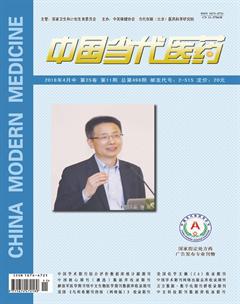發育篩查量表的評價者間信度和共聚效度分析
劉燁 李家瓊 熊才運 王耀洲 羅林蔭 崔玉霞 周浩

[摘要]目的 分析發育篩查量表(DST)在嬰幼兒發育評估中的可靠性和有效性。方法 選取2016年4月1日~2017年3月31日在貴州省人民醫院兒科康復門診就診的0~6歲嬰幼兒。兩名經過嚴格培訓的專業評估師對納入研究對象進行DST評估,分析其評價者間的信度。納入研究對象同時進行Peabody運動發育量表評估,該工具作為金標準評估工具,分析DST的共聚效度。結果 共有174患兒(男99例,56.9%)納入本次研究,年齡為(10.23±9.43)個月。DST中發育商(DQ)得分為(67.83±19.63)分,智商(MI)得分為(61.94±15.90)分,女孩DQ和MI得分均高于男孩,差異有統計學意義(P<0.05)。DST各維度得分的組內相關系數(ICC值)為0.76~0.89,提示評估師評分之間具有較好的相關性。Peabody中的粗大運動商(GMQ)、精細運動商(FMQ)、總運動商(TMQ)得分與DST的DQ和MI得分之間的相關系數分別為0.59 vs. 0.57、0.62 vs. 0.68、0.63 vs. 0.64。Peabody中粗大運動中反射、姿勢和移動得分與DQ和MI的相關系數分別為0.42 vs. 0.36、0.54 vs. 0.50、0.56 vs. 0.58;精細運動中抓握和視覺運動整合的分與DQ和MI得分的相關系數分別為0.65 vs. 0.70、0.62 vs. 0.68,DST各維度與Peabody精細運動維度相關性最好,與粗大運動維度相關性稍低。結論 DST發育篩查測試量表具有較好的評價者間信度和共聚效度,提示該量表在中國兒童人群中是一個可靠和有效的運動發育篩查工具。
[關鍵詞]DST發育篩查;Peabody運動發育量表;篩查;信度和效度
[中圖分類號] R715.9 [文獻標識碼] A [文章編號] 1674-4721(2018)4(b)-0004-04
Evaluation of the interviewer reliability and copolymerization validity of the development screening test
LIU Ye1 LI Jia-qiong2 XIONG Cai-yun2 WANG Yao-zhou2 LUO Lin-yin2 CUI Yu-xia2 ZHOU Hao2▲
1.Department of Ear-Nose-Throat,Guizhou Provincial People′s Hospital,Guizhou Province,Guiyang 550004,China;2.Department of Pediatric Rehabilitation,Guizhou Provincial People′s Hospital,Guizhou Province,Guiyang 550004,China
[Abstract]Objective To analyze the reliability and validity of development screening test (DST) in the evaluation of infant development.Methods Infants and children in 0-6 years old who were treated in Department of Pediatric Rehabilitation of Guizhou Provincial People′s Hospital during the period of April 1,2016 to March 31,2017 were selected as the subject of this research.The DSTs of the subject were evaluated by two highly trained professional evaluators to analyze the reliability of their interviewer.The subjects also participated in the Peabody sports development test,which was used as a gold standard assessment tool to analyze the copolymerization validity of DST.Results A total of 174 children (male 99 cases,56.9%) were included in this study,with an average age of (10.23±9.43) months.The developmental quotient (DQ) score in DST was (67.83±19.63) points,and the mental index (MI) score was (61.94±15.9) points.The DQ and MI scores of girls were all higher than those of boys,with statistically significant difference (P<0.05).The intra-class correlation coefficient (ICC) value of each dimension of DST was between 0.76-0.89,and the results showed that there was a good correlation between the interviewers′ score.The correlation coefficients between gross motor operator (GMQ),fine motion operator (FMQ),total motion operator (TMQ) in Peabody and DQ,MI scores of DST were 0.59 vs. 0.57,0.62 vs. 0.68,0.63 vs. 0.64,respectively.The correlation coefficient of Peabody in gross motor between reflection,posture,mobile score and DQ,MI were 0.42 vs. 0.36,0.54 vs. 0.50,0.56 vs. 0.58;the correlation coefficient of grasping and visual motor integration in fine motor and DQ and MI scores were 0.65 vs. 0.70,0.62 vs. 0.68;each dimension of DST was best correlated with fine motor in the Peabody and slightly lower correlated with gross motor dimensions.Conclusion DST has good inter-interviewer reliability and copolymerization validity,indicating that the test is a reliable and effective tool for motor development screening in Chinese children.

